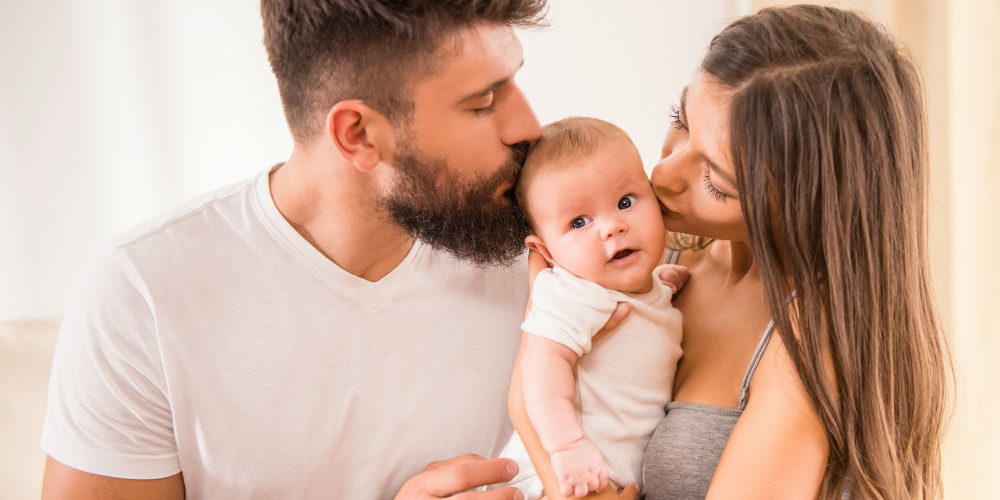A closed adoption is not as common today as it used to be. In the past, closed adoptions were how most adoptions took place. Birth parents placed their children with a third party (agency or social worker) who then placed the child with their adoptive parents. Birth parents and adoptive parents had little to no information about each other and had no contact after the adoption occurred. After adoption, records of the adoption would be sealed and not available without a court order; this includes access to an adoptee’s original birth certificate. Adult adoptees had a very hard time finding out information about their birth families if they were able to find out anything at all. In the last few decades, there has been a movement toward open or semi-open adoptions rather than closed adoptions.
With open and semi-open adoptions gaining popularity, it is important to note that many states do not recognize the contracts made regarding open adoption. Many states do not enforce any adoption contract that is agreed upon by birth and adoptive parents regarding communication, photos, or visits. These agreements are made on “good faith” that each party will hold up their end of the agreement.
With other choices available, why do some people still choose a closed adoption? What are some of the benefits of a closed adoption?
A family that is adopting a child who has been abused or neglected and has been placed for adoption within the foster care system may choose to have a closed adoption to protect the child. They may prefer that the child is unable to reach out to the birth family that didn’t protect them. They may think that the child can be sheltered from the birth family who might seek them out. In these situations, closed adoption may be chosen for safety concerns.
Some adoptive parents choose closed adoption because they worry that open adoption may be confusing for the child. Many believe that a child will have a hard time understanding the relationship they have with their adoptive parents, as well as with their birth parents. Most kids are able to understand that one set of parents created them, and the other parents are the ones who will raise them. But it is common for parents to worry about how the adoptee will understand these relationships without confusion. It is a very common insecurity that adoptive parents have when considering what type of adoption is right for them.
Adoptive parents may prefer a closed adoption because they worry that an open adoption may feel too much like co-parenting. While having open communication with a child’s birth family may allow them to express opinions and offer suggestions, there is no co-parenting situation. Adoptive parents are responsible for the daily and lifelong decisions to be made for the child. The birth family will have terminated their legal right to be involved in any decisions for the adoptee. This includes medical decisions, school decisions, and religious decisions.
The relationship may come under some stress when all parties don’t agree. This is a reason some people prefer to have a closed adoption rather than an open adoption. Some would rather avoid the potential conflicts and hurt feelings about parenting differences.
Adoptive parents may also worry about being scrutinized for decisions they make and prefer to have a closed adoption because of that. Some adoptive parents feel that if birth families are involved, they will be seen as “secondary” parents, or as stand-ins for their child’s birth family. They worry that when they all come together their child will prefer their birth family, and they will long to be with them. This is a common parental fear in adoption.
Adoptive parents may also worry that by introducing a child to their biological family they will not be seen as their child’s “real parents.” The term “real” in the adoption community may as well be a cuss word. It is hurtful and does not apply when talking about parents. Both adoptive and birth families are real people and being on one side or the other does not diminish your love for a child. However, fear of the child saying, “You aren’t my real mom,” or “You aren’t my real dad,” can be a motivator to choose a closed adoption. Often, adoptive parents are worried about their feelings and want to be able to do what they can to be viewed as valid parents. It is important to know that just because you have adopted a child to begin your parenting journey, this doesn’t diminish the “realness” of your role or your validity. You are, in fact, this child’s mother and father. Legally, emotionally, and legitimately. This is true for closed adoption as well as open adoption.
Birth parents may prefer closed adoption if they are feeling emotionally fragile. Having the adoption closed may allow them to move past the event and not dwell on it. Not all birth parents are able to mentally process an ongoing relationship with a child that they have placed for adoption. Open adoption is not for everyone, and there are times when a closed adoption will be better for those involved. There is no doubt that any adoption choice is a journey that is full of a range of emotions.
Birth family may wish to keep the adoption private, and for those reasons, they may choose to have a closed adoption. They may not wish to share their choice with friends or family, and so a closed adoption is the best way to avoid having to disclose their decision to others. The birth parents may feel they made the best decision for the child, and do not wish to have to explain or hear opinions or judgements of friends and family on the subject.
A birth parent may choose a closed adoption for their child if the child is the result of an abusive relationship or if the child was conceived when the birth mother was raped. The birth mother may want to protect her child from the grim reality of their conception, while hoping that they can live a healthy and happy life with another family. The birth mother may not want an open adoption where she would be able to see the face of a child that may resemble her abuser or attacker, and when she would be reminded of her own trauma. However, she may have chosen to carry the pregnancy and place the child for adoption since she recognized that the incident was not the fault of the child. This is undoubtedly further trauma for the birth mother. She may feel she is protecting her child the best she can by having a closed adoption where this information is not shared, and where she can remain protected from reliving her trauma as well.
A birth family may choose closed adoption if they want to shield their child from other potentially hurtful information. For instance, if one parent is incarcerated or facing criminal charges, they may feel it is best for the child to be in a closed adoption so they do not have that information. They may not want the child to know that they, as biological parents, made some poor life choices. They may instead want to protect the child by keeping the information private. They may feel that by keeping the information private, the child will not have negative views about their biology or about their adoption placement. A child who has birth parents who are part of the legal system may worry that they are destined to make the same mistakes. They may also feel like they were not important enough to their birth parents to make life changes that would allow them to raise a child and instead chose criminal activity over being parents. These types of feelings would be difficult for a child to process. In these situations, a birth family may choose to keep the adoption closed in order to shelter the child and not burden them with unflattering information.
Closed adoptions are becoming much less common. Today, most adoptions are open or semi-open. Closed adoptions account for only about 5 percent of adoptions.
Most birth families are involved in selecting the family in which their child will be placed. Many opt to exchange information, including names and sometimes locations, to maintain contact. Many prefer to be able to have some level of communication or contact rather than the lack of further contact that a closed adoption would give them. If you are hoping to adopt and are seeking a closed adoption, your profile will not appeal to many who are seeking to place their child for adoption. This is something to consider.
Whatever the reasons, if you wish for a closed adoption it is important to tell your agency or social worker so that you are able to find the right adoption situation for you.
However, choosing to be involved in a closed adoption will limit your possibilities of placement. With semi-open and open adoption being the majority of adoption placements, if you are only willing to enter into a closed adoption you may need to wait longer and have fewer options. With the understanding that the wait and options are lowered, some families feel pressure to enter into adoption situations that require more openness than they desire. It is important to know and understand the differences in open, closed, and semi-open adoptions to be able to make the right choice for your family. If you are not comfortable with an open or semi-open relationship, you should not feel pressured to commit to one. Doing so start your adoption journey out with a negative feeling, and will likely continue to make you feel uncomfortable long term. Adoption and adoption agreements should be entered into with as much information and processing as possible, and should not be agreed to if all sides are not comfortable with any and all aspects of the agreement. Entering into arrangements you are uncomfortable with could result in an adoption disruption or dissolution.
When considering placing a child for adoption it is important to weigh the pros and cons of each type of adoption to determine what is best. Do you wish to have any future information? If so, you should not agree to a closed adoption. Do you feel like you need closure, and would do best in a situation with no further contact? If so, then closed adoption may be what you are looking for.
When hoping to adopt, are you willing to consider contact with birth parents or extended birth family after finalization? Would you be willing to share photos, updates, and other information with the birth family of your child? Would you be comfortable considering visits with your child’s birth family or extended relatives? If you are comfortable with these possibilities, you would likely prefer to enter into an open or semi-open relationship. Keep in mind that many of these contracts, as stated earlier, are not enforced by law and are entered in good faith. If you don’t intend to follow thru with your agreements you should not enter them.
If you are hoping to adopt and wish for privacy and no further contact with your child’s birth family, you should seek a closed adoption. Keep in mind that this type of adoption will make contact more difficult for your child should they decide to search for their birth family as they grow older. This will also limit information you receive from the birth family, and limit your ability to find out anything after finalization. This may include medical history information, and questions you may have regarding any medical information that you do not know. You may be unable to find out more details on your child’s genetic history if there is an unexpected diagnosis or medical concern when you are in a closed adoption. However, if a closed adoption is the right choice for you and your family, knowing all the pros and cons, be sure to enter into a closed arrangement.
Considering adoption? Let us help you on your journey to creating your forever family. Visit Adoption.org or call 1-800-ADOPT-98.




